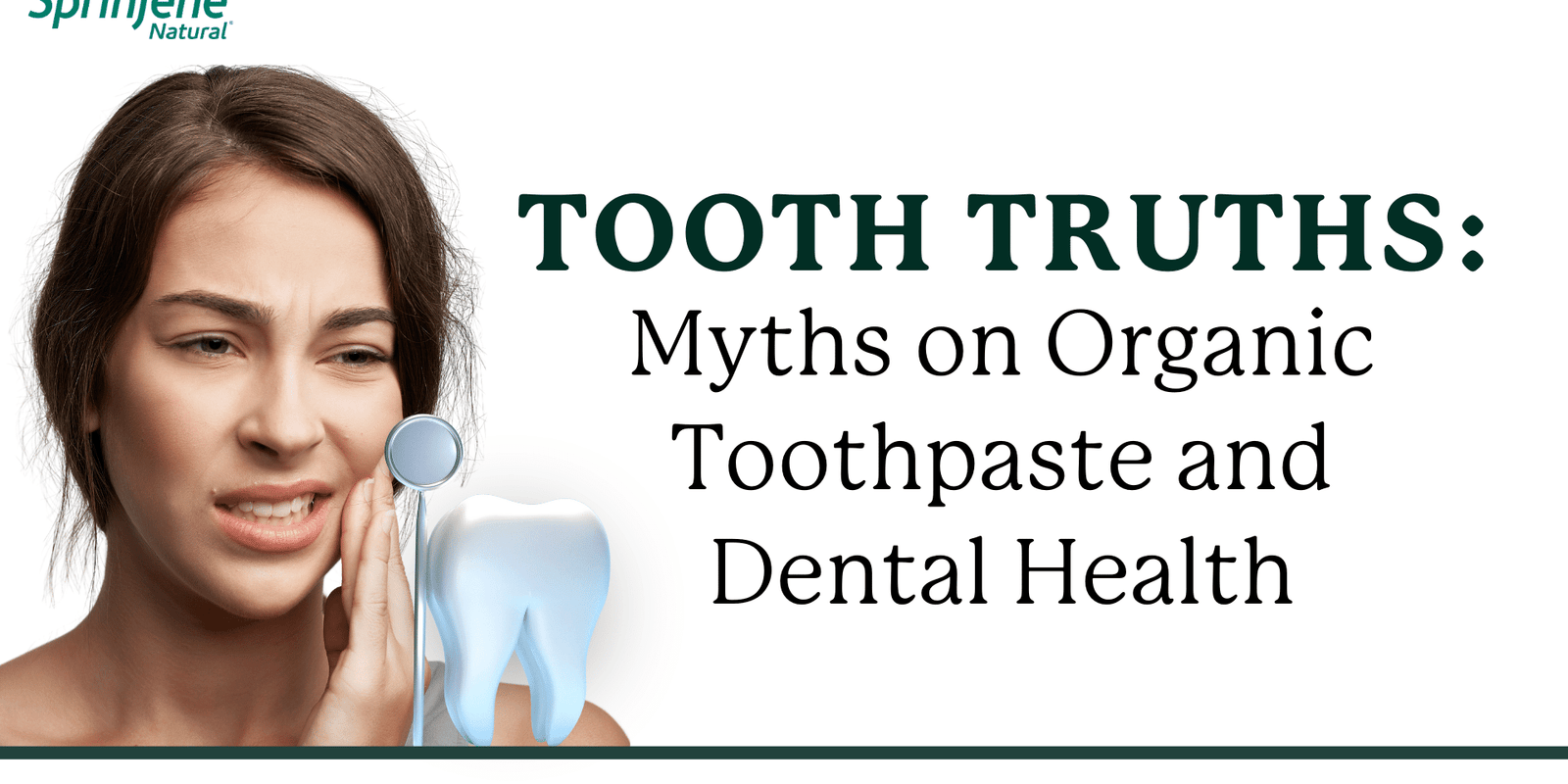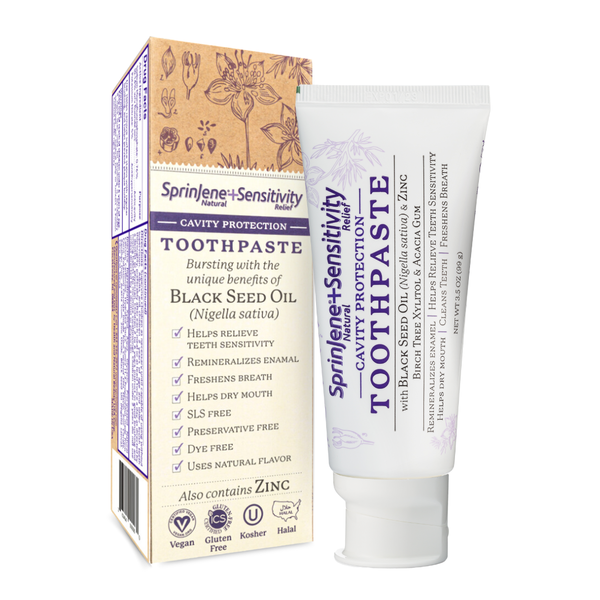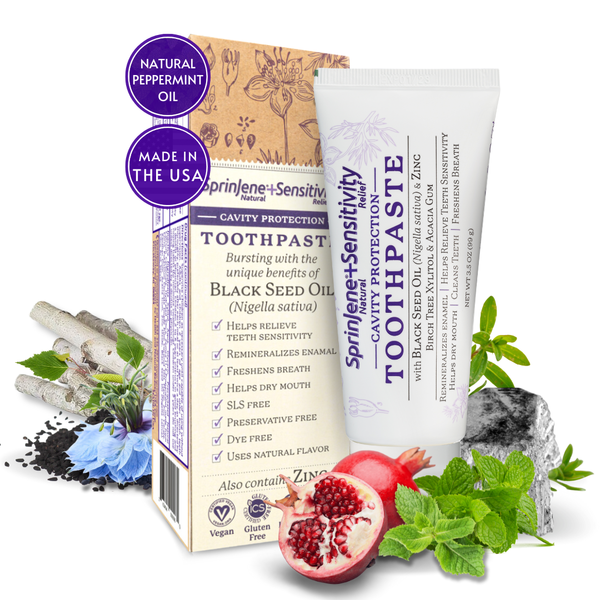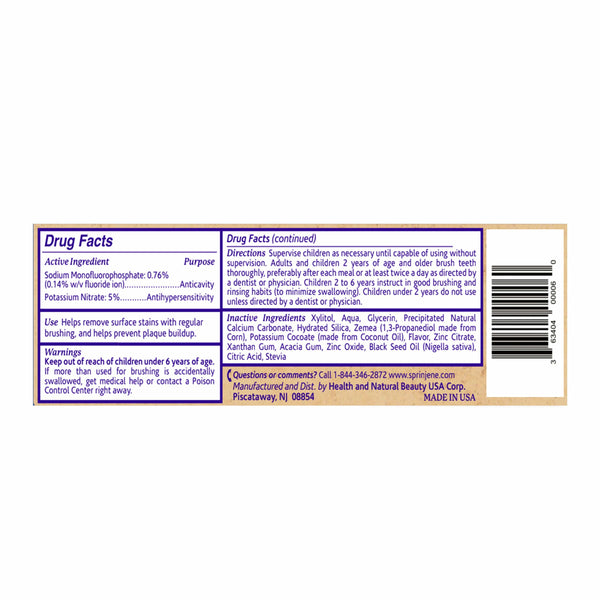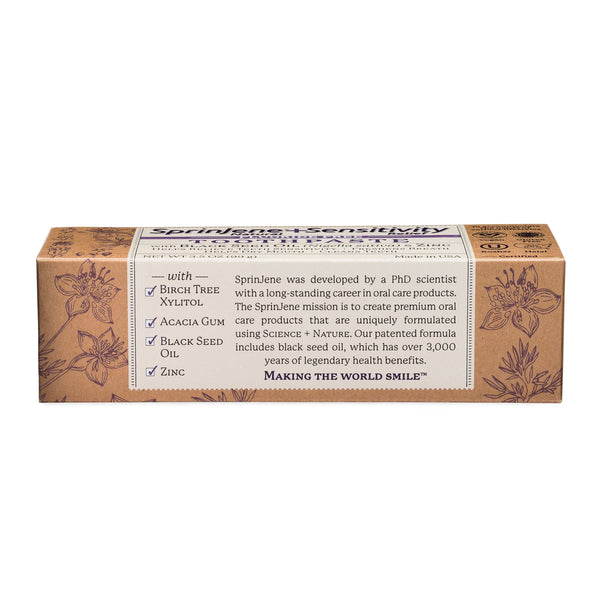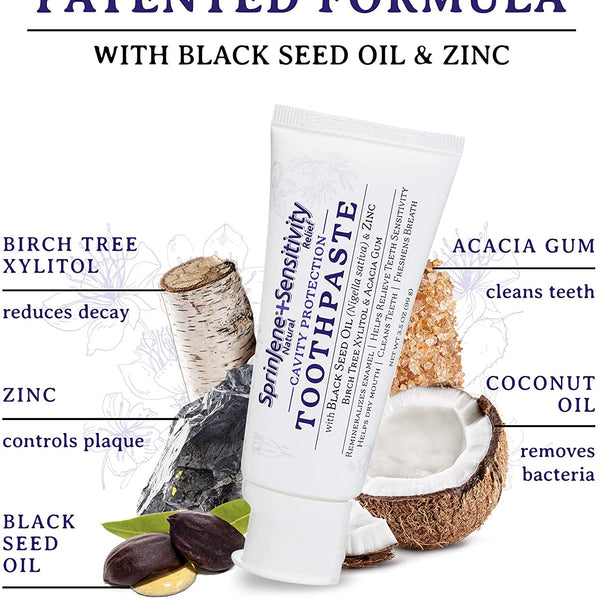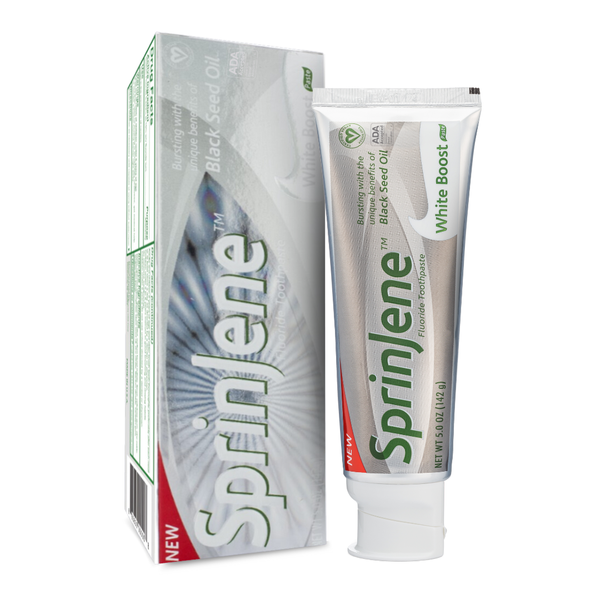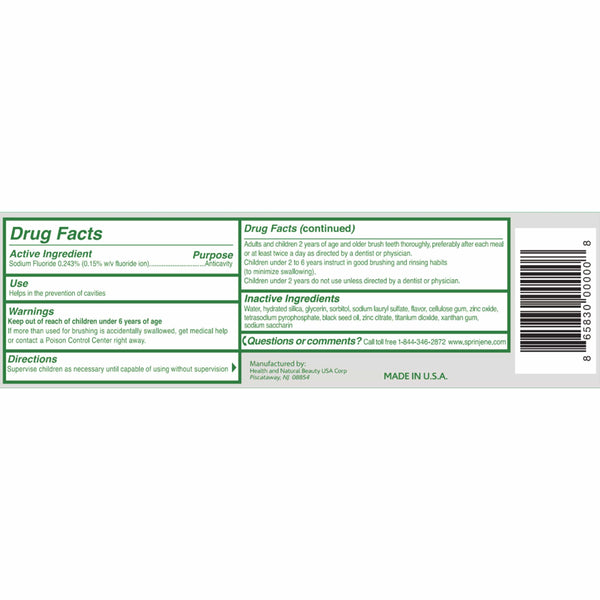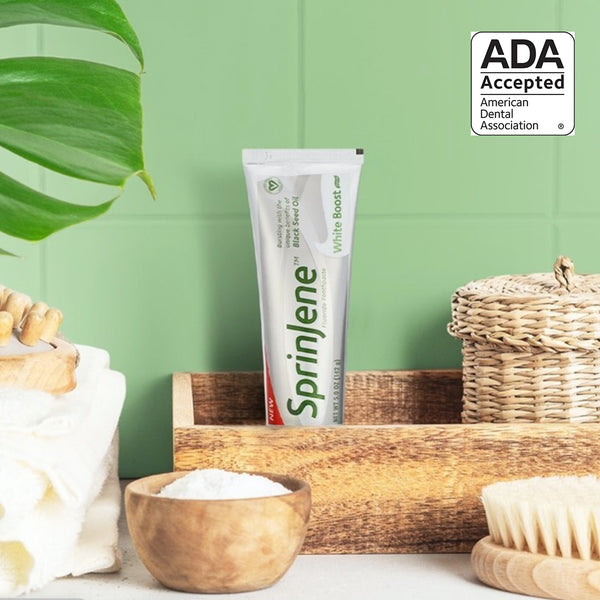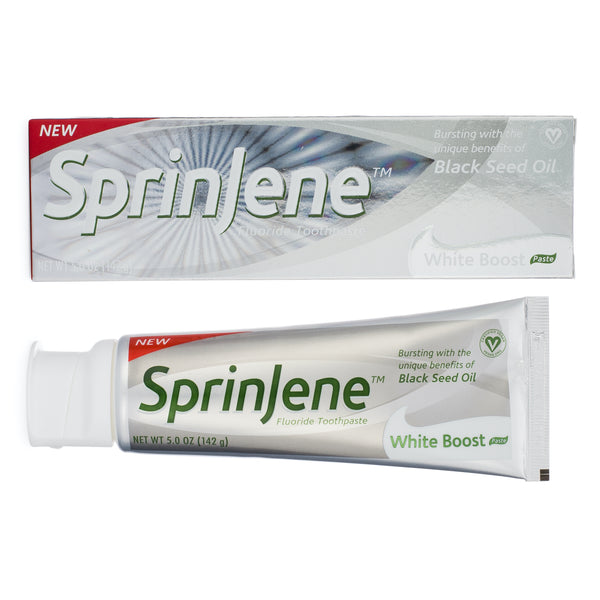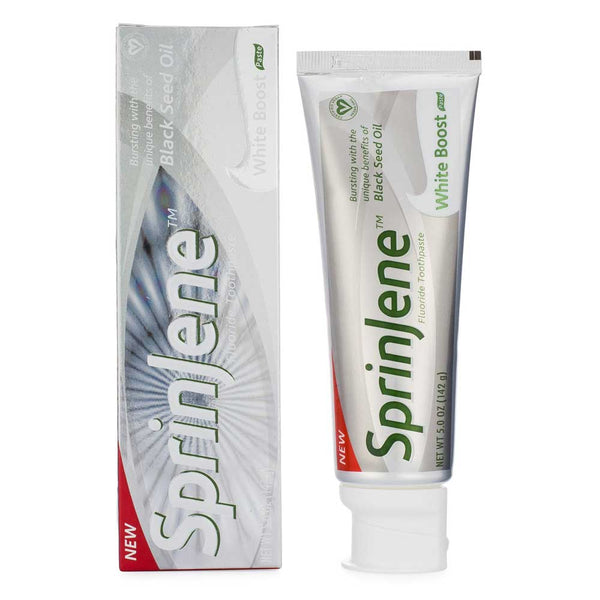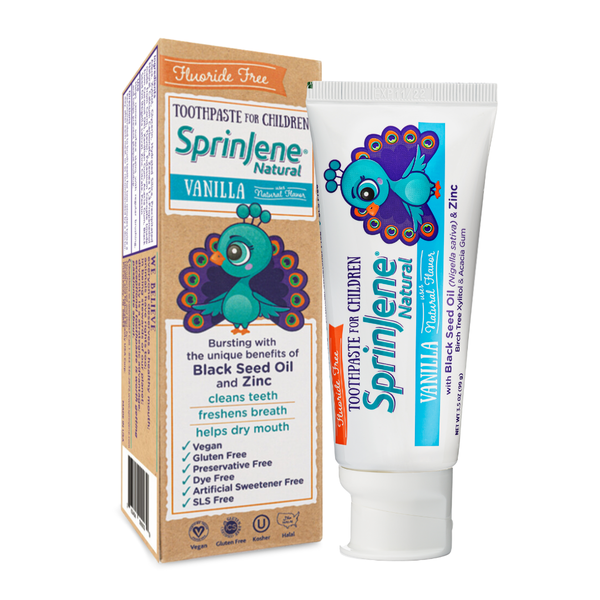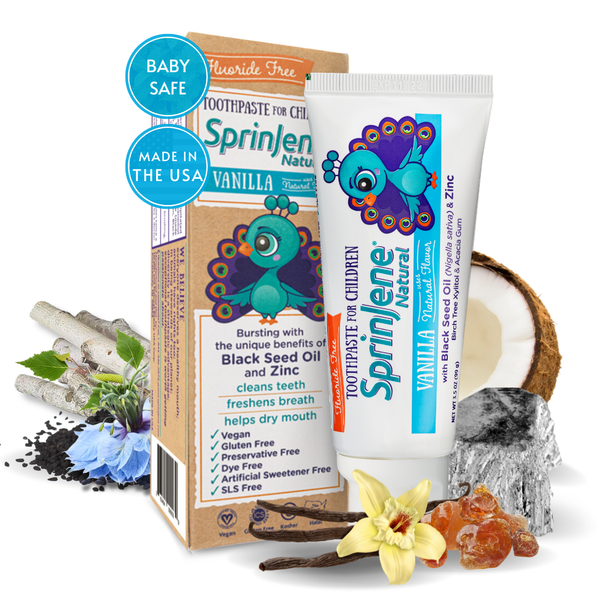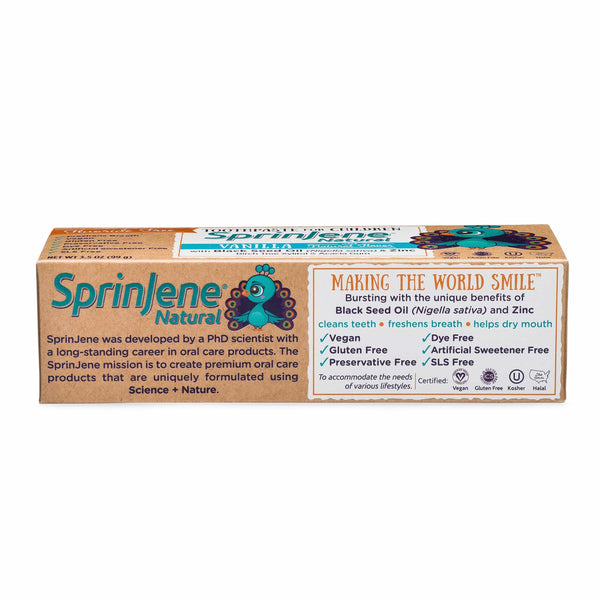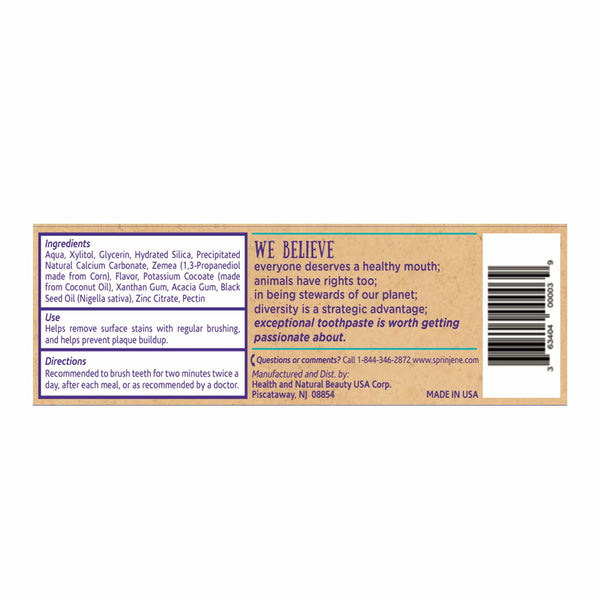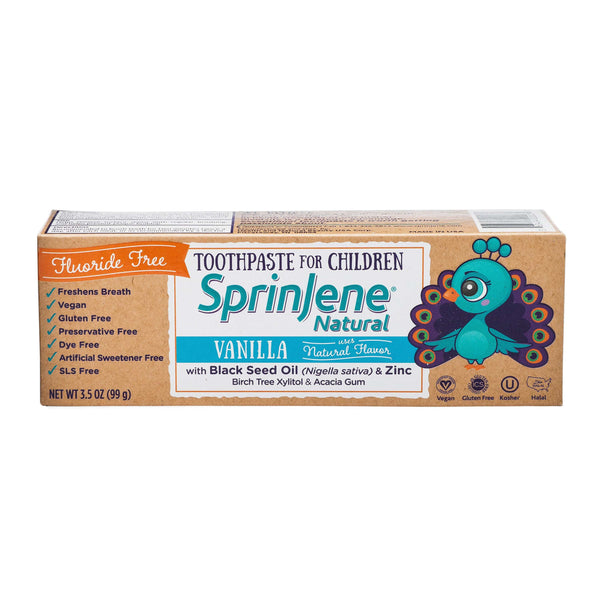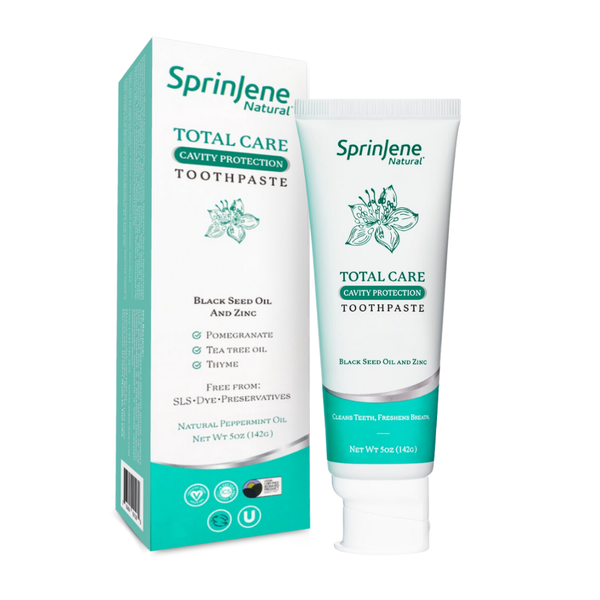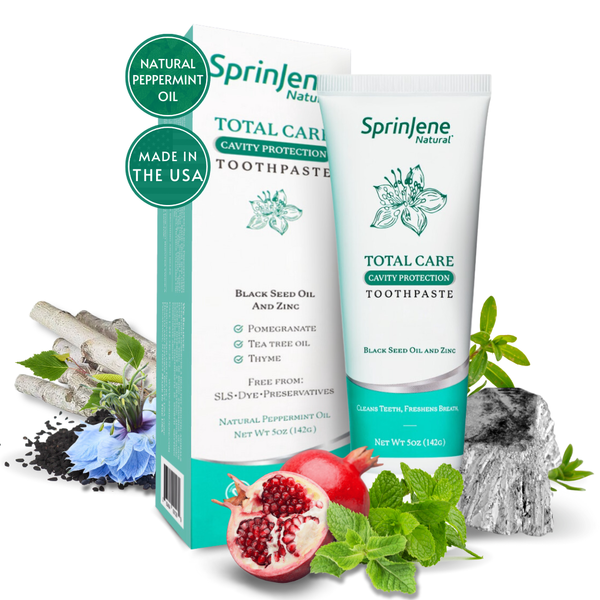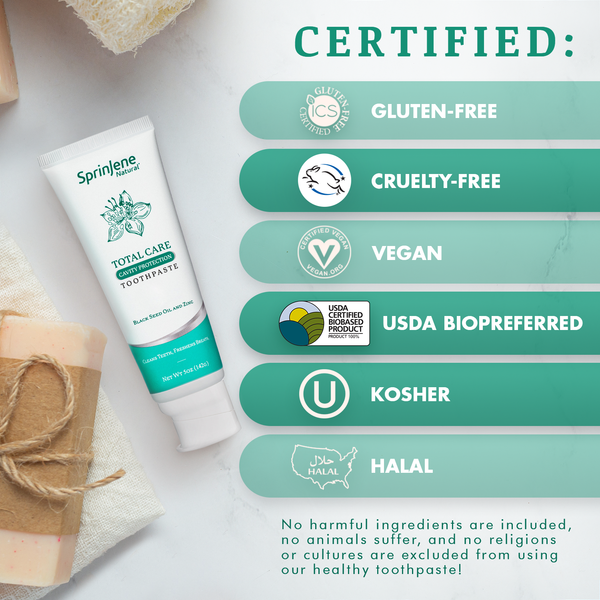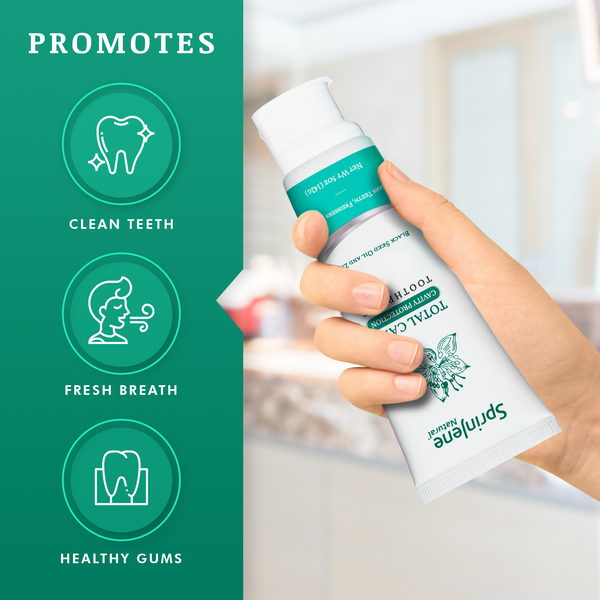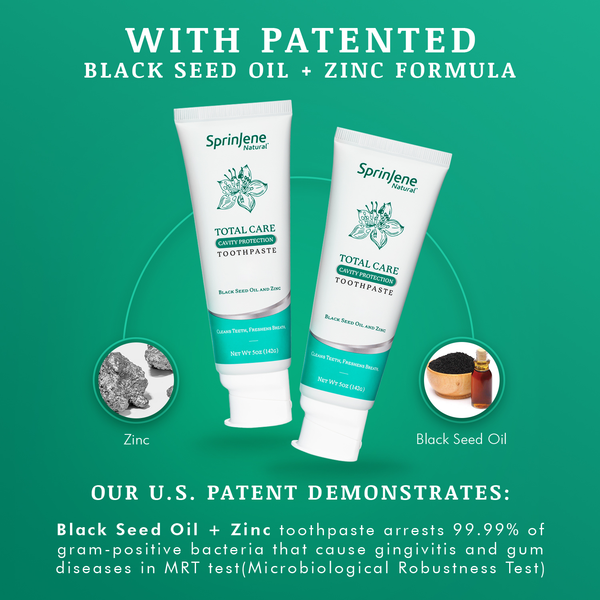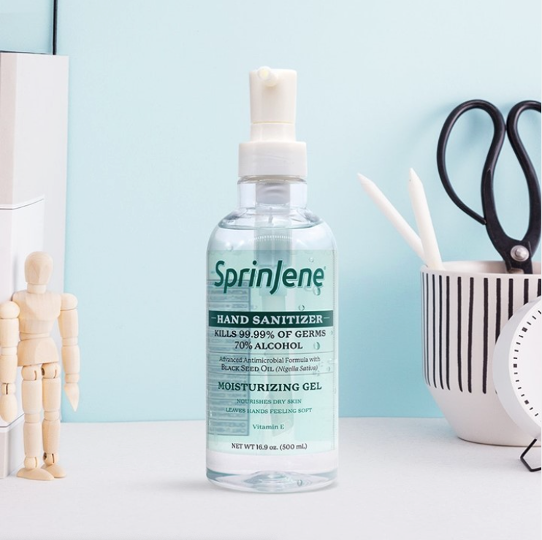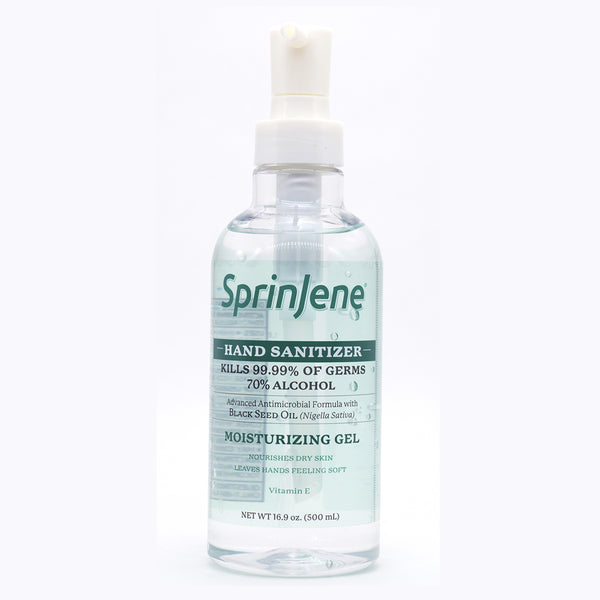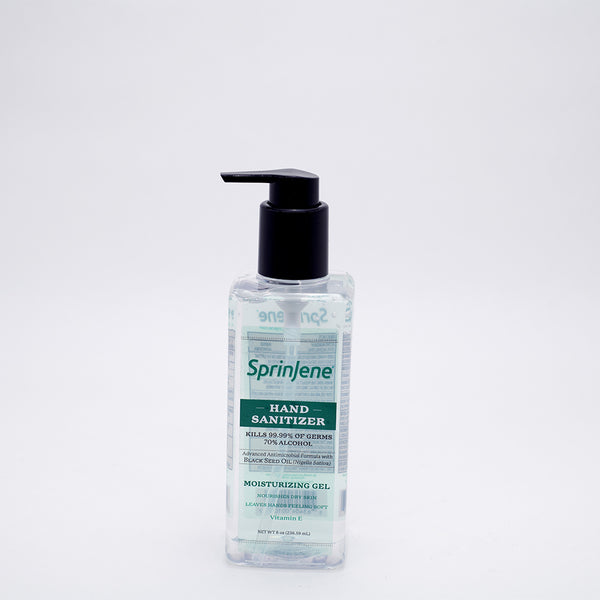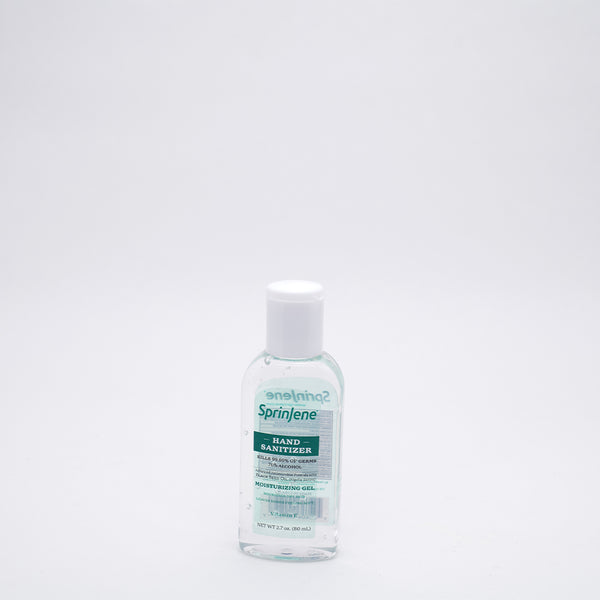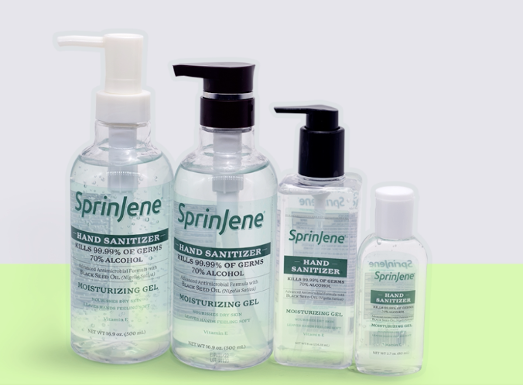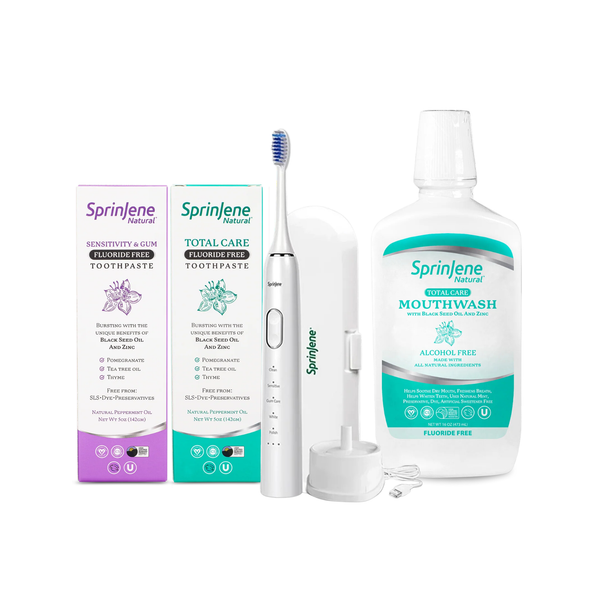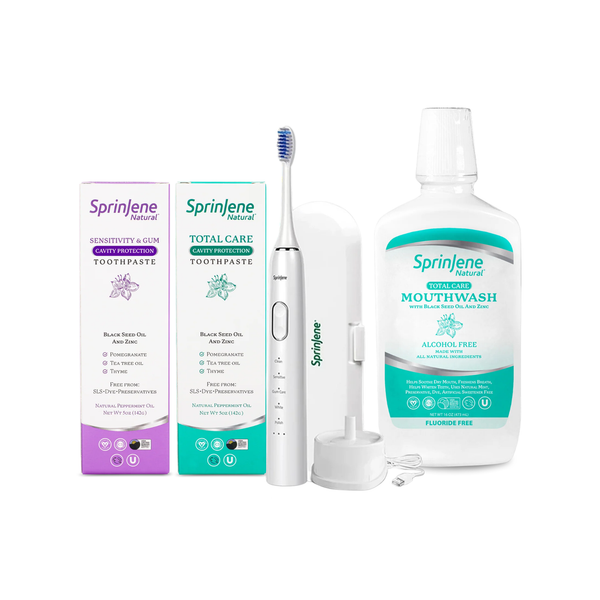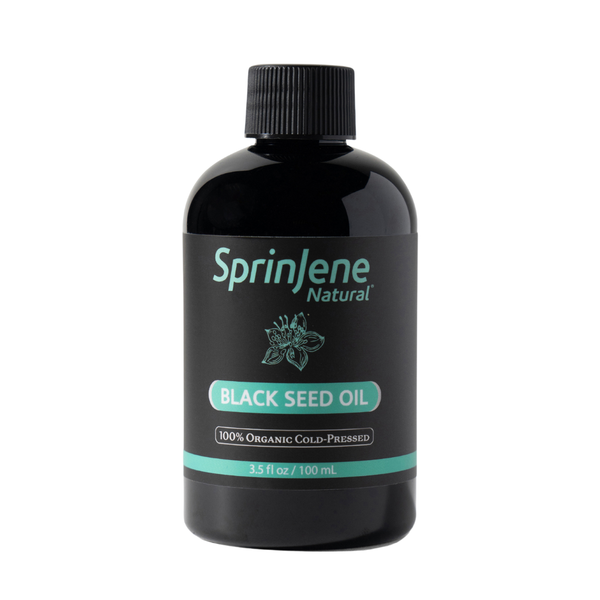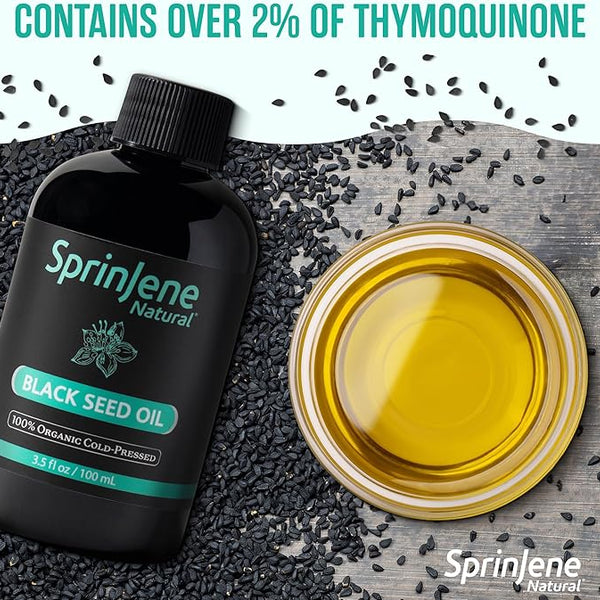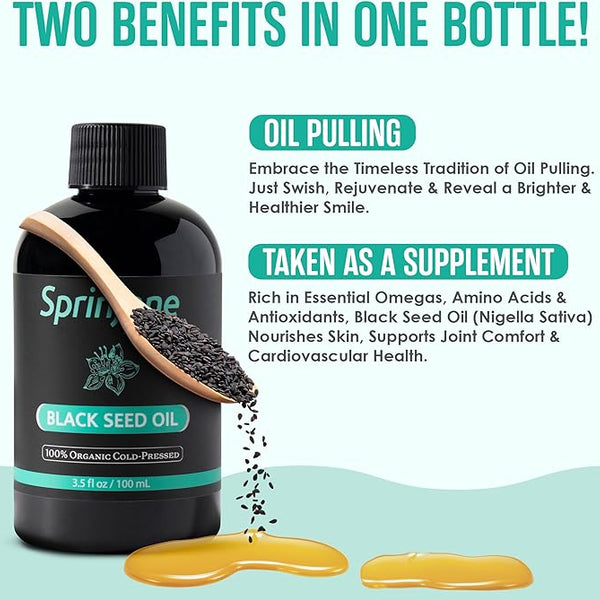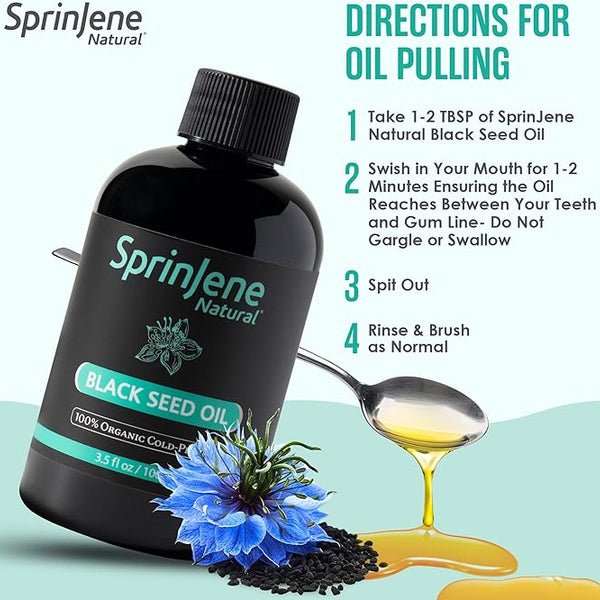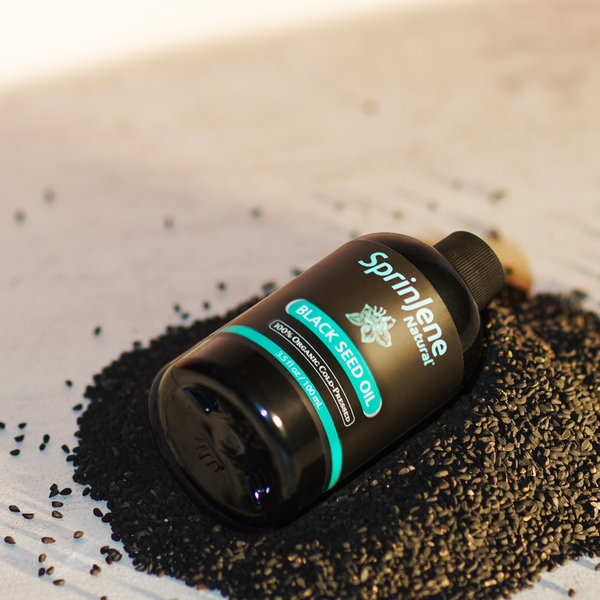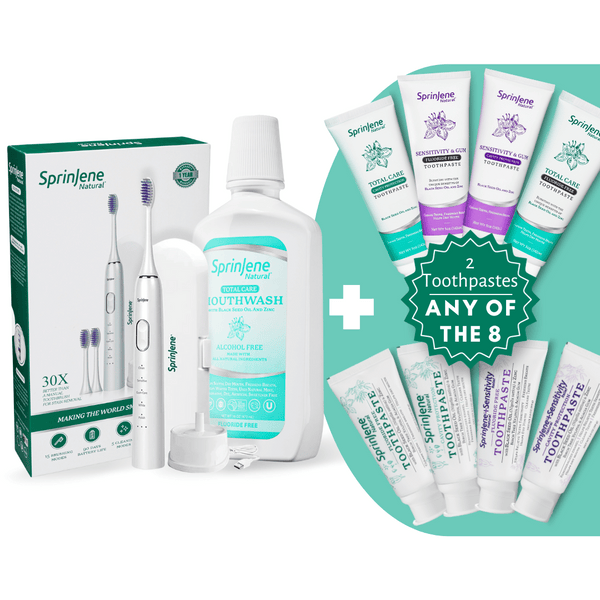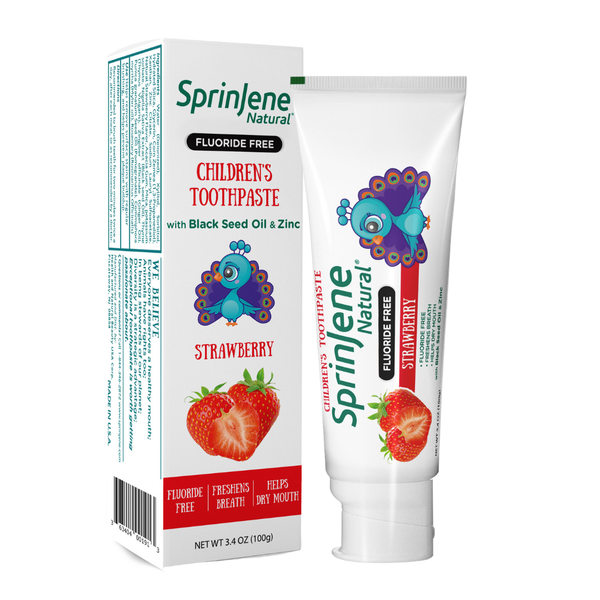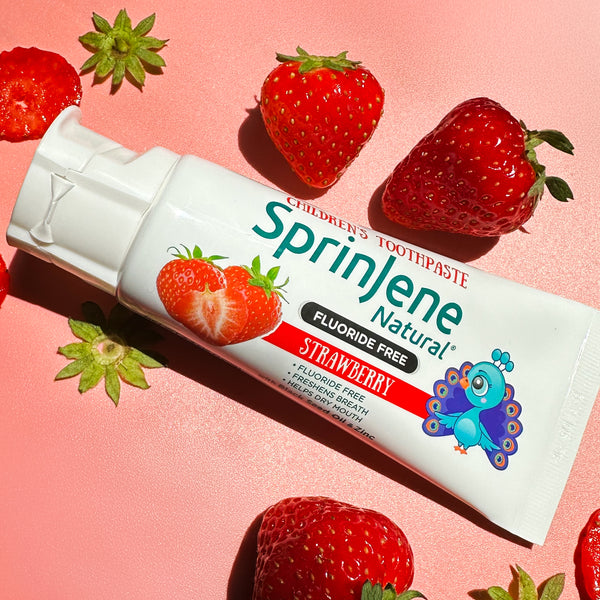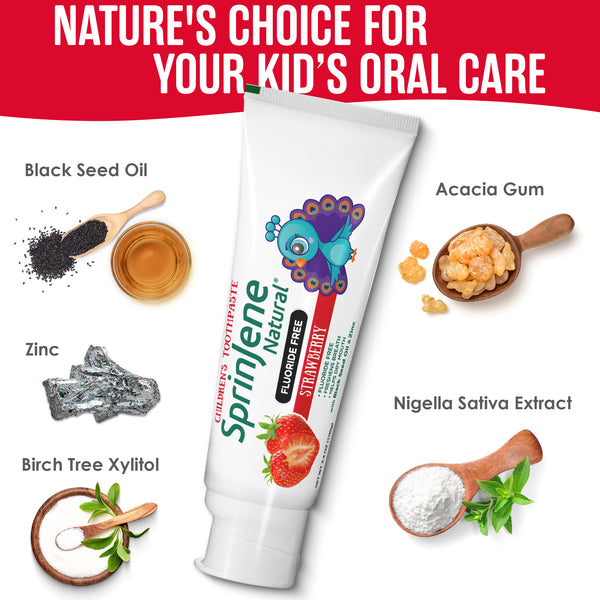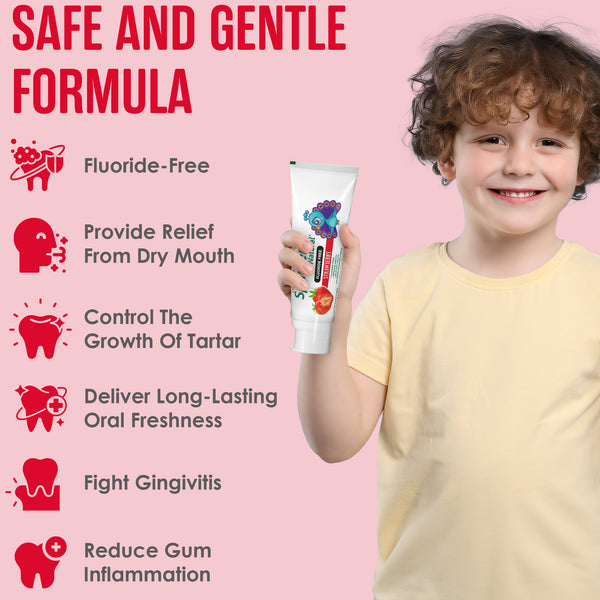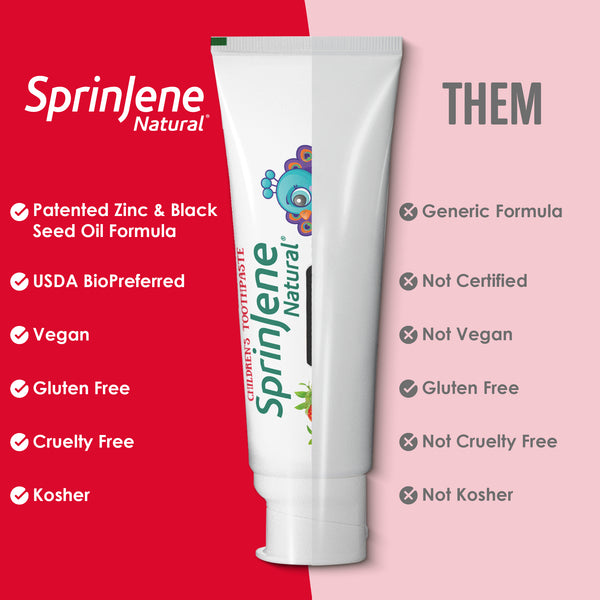Many people are choosing organic and natural products for a healthier lifestyle, including their oral care. People's desire for chemical-free products fuels the popularity of organic toothpaste.
However, akin to numerous health trends, there are prevalent misconceptions surrounding organic toothpaste and its influence on dental health. In this article, we will uncover these myths and give you accurate information to help you make informed decisions. We will also explore the role of black seed oil in oral care, with a closer look at SprinJene Natural® toothpaste.
Misconception 1: Organic Toothpaste Cannot Prevent Cavities
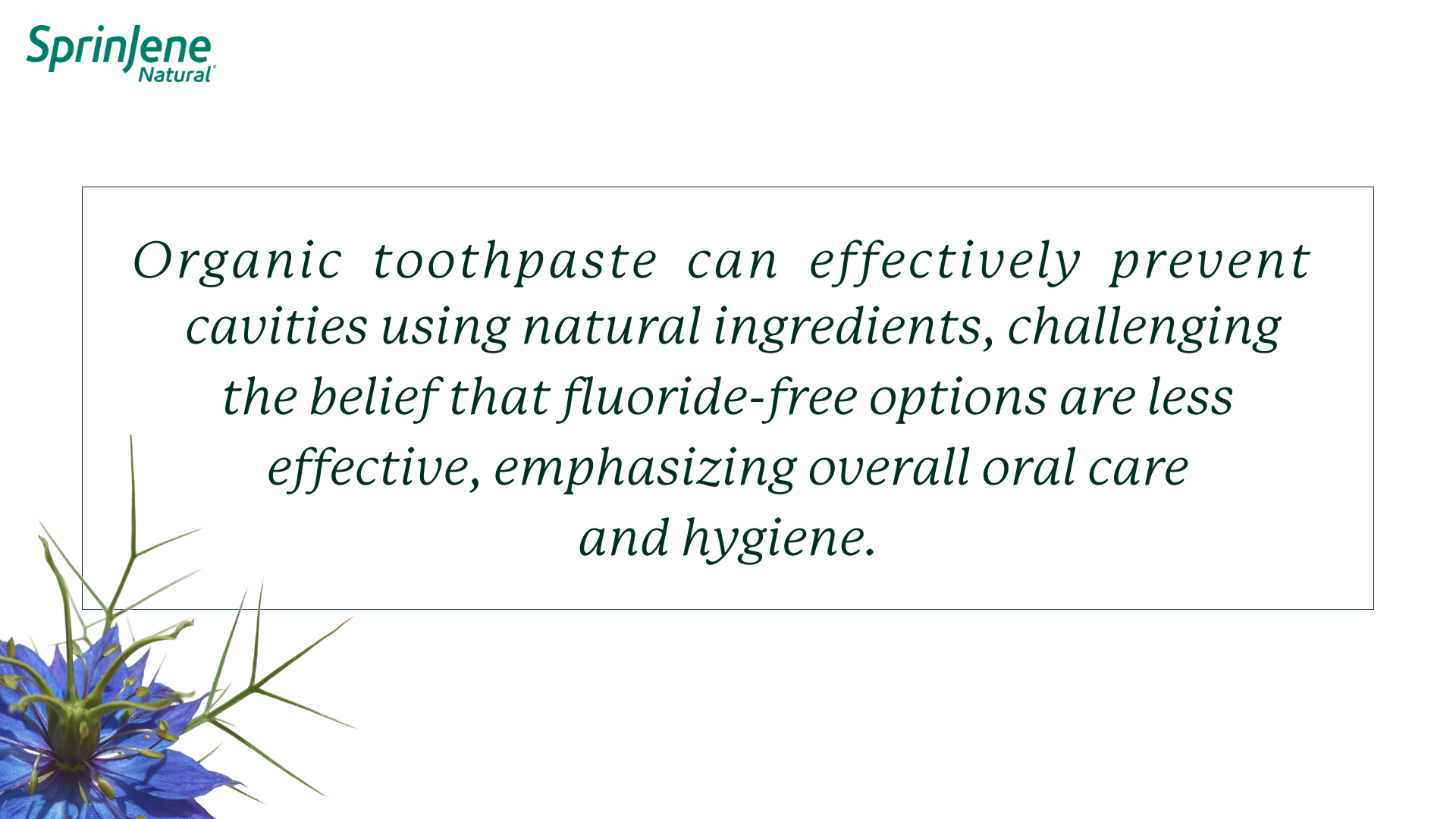
One prevalent misconception about organic toothpaste is that it cannot effectively prevent cavities. Some people think that organic toothpaste, which usually doesn't have fluoride (a common thing in regular toothpaste that stops cavities), might not be as good at keeping your teeth healthy. It is important to understand that the absence of fluoride in many organic toothpaste brands does not mean they don't work.
Many organic toothpaste options have natural things like xylitol, baking soda, and herbs, like neem, that can stop the germs in your mouth from growing and causing harm. Besides, it's very important to brush your teeth regularly, keep your mouth fresh, and eat a healthy diet to prevent cavities, regardless of the toothpaste you use.
Discover the Secrets of Switching to Natural Toothpaste for a Healthier Smile.
Misconception 2: All Organic Toothpaste Brands Are the Same
Organic toothpaste brands differ significantly from one another. A vast array of organic toothpaste options exists, each featuring its distinctive combination of ingredients and formulations. Some emphasize eco-friendly and environmentally-friendly packaging, while others concentrate on specific advantages for oral health.
For instance, SprinJene Natural® toothpaste is a notable organic toothpaste brand that uses black seed oil in its formulations. Many believe black seed oil has properties that combat bacteria and promote gum health. It's essential to research and choose an organic toothpaste that aligns with your oral health goals and preferences.
Learn Why SprinJene Natural Outranks Other Natural Toothpaste Brands.
Misconception 3: Organic Toothpaste Does Not Whiten Teeth
Another misconception is that organic toothpaste cannot effectively whiten teeth. Conventional toothpaste often contains abrasive ingredients and chemical whiteners for immediate results. However, organic toothpaste can still help whiten teeth gradually over time, and the results may be more sustainable.
Organic toothpaste formulations often incorporate natural whitening agents like baking soda and activated charcoal. These things can softly take away stains on the surface of your teeth, which makes your smile brighter.
In contrast to certain conventional toothpaste products that may contain abrasive components, these will not cause any abrasions or scratches to your teeth. Remember, the results of teeth whitening with organic toothpaste can differ from person to person, and it takes time. Therefore, exercising patience is of significant importance.
Read more about Nurturing Your Oral Health Using Natural Ingredients.
Misconception 4: Organic Toothpaste Cannot Address Gum Issues
Certain individuals hold the belief that organic toothpaste may not effectively tackle gum issues like inflammation or gum disease. However, many organic toothpaste brands have things like aloe vera, tea tree oil, and black seed oil. These natural ingredients can reduce swelling and fight off harmful bacteria in your mouth.
Mentioning black seed oil is worth it because researchers have studied it for its potential to reduce gum swelling and enhance gum health. When used with good brushing methods and regular dental check-ups, organic toothpaste can keep your gums healthy.
Learn more about the Gum Disease.
Misconception 5: Lack of Clinical Testing for Organic Toothpaste
A common misconception is that organic toothpaste lacks scientific validation and clinical testing. Actually, many trusted organic toothpaste brands do thorough testing to make sure their products work well and are safe.
For instance, a team of experts, including dentists and scientists, conducts extensive testing and formulates SprinJene Natural® toothpaste. This toothpaste has black seed oil in it, and scientists have studied it to see if it can be good for your oral health. Clinical studies help validate the claims made by organic toothpaste brands and provide consumers with confidence in their choices.
Misconception 6: Dentists Do Not Recommend Organic Toothpaste
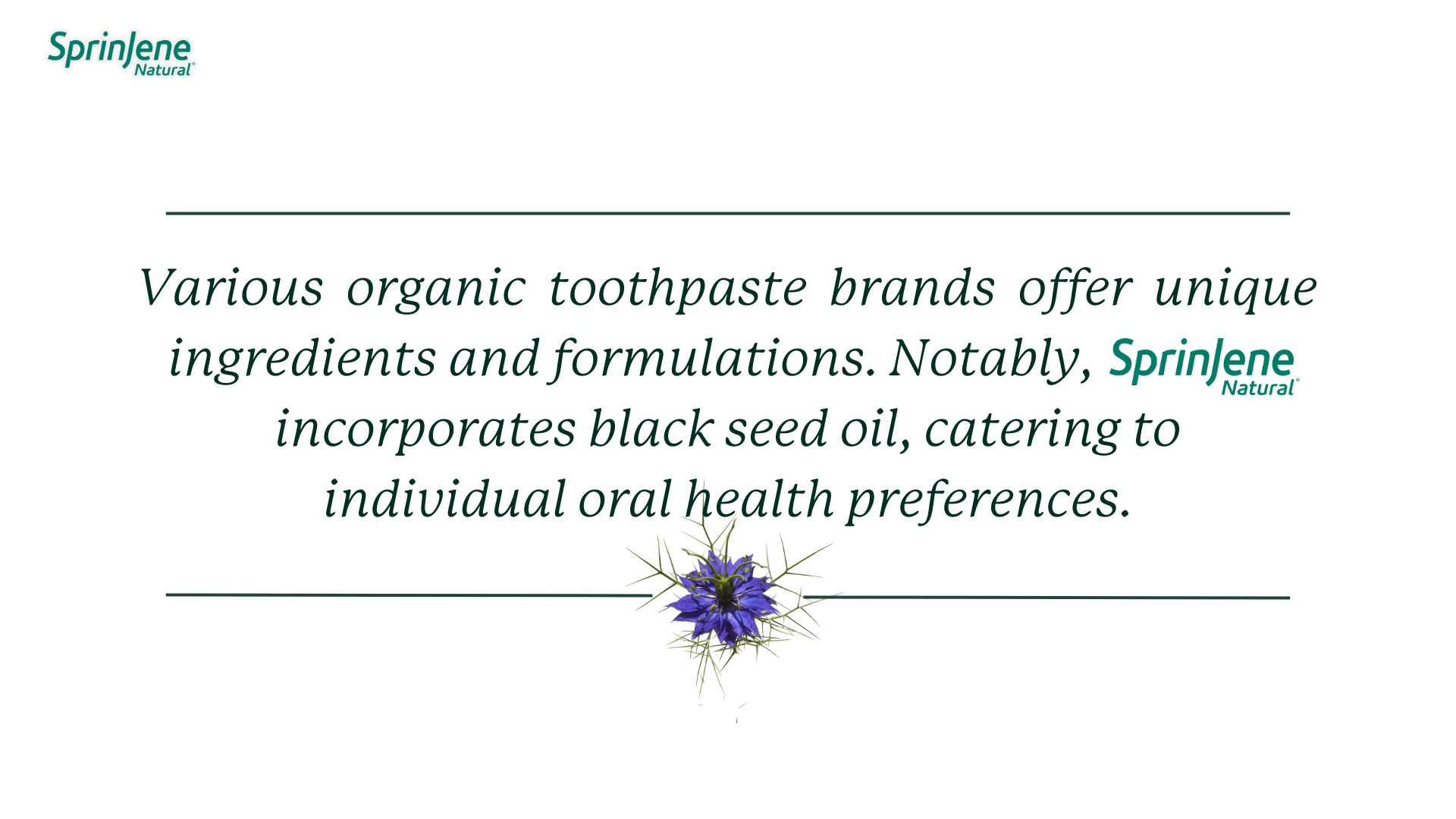
Another misconception is that dentists do not recommend organic toothpaste. Although certain dentists favor conventional fluoride toothpaste for particular patients, many dental professionals are willing to explore organic alternatives with their patients.
Starting a discussion with your dentist regarding your oral health objectives and personal preferences is crucial. Your dentist can provide helpful guidance on picking the right toothpaste for your needs. They might even suggest organic brands like SprinJene Natural® if it align with your dental care goals.
This Recommended oral Health Plan might work for you.
Misconception 7: Organic Toothpaste Cannot Tackle Bad Breath
A considerable number of individuals are concerned about halitosis, and a portion of them believe that organic toothpaste cannot address this issue. Organic toothpaste can help with bad breath, especially when it has natural ingredients like mint, cloves, or eucalyptus oil that make your breath smell better.
Also, keeping your mouth healthy and preventing bad breath is important. This means regularly brushing your teeth, flossing, and cleaning your tongue. Organic toothpaste can serve as a valuable component within your comprehensive oral care regimen.
Read more about the Best Natural Toothpaste carefully crafted your you.
The Bottom Line
Organic toothpaste is a good choice for keeping your teeth healthy, but it's important to know what's accurate when considering it. A lot of people have wrong ideas about organic toothpaste, like whether it can stop cavities, fix gum issues, or make your teeth whiter.
It's essential to remember that not all organic toothpaste brands are the same. Some might have special benefits, like using black seed oil, which you can find in products like SprinJene Natural® Toothpaste. When choosing organic toothpaste, it's a good idea to talk to your dentist, read the labels on products, and do a bit of research to find the one that suits your dental needs and what you think is important.
To make smart choices for your teeth and the environment, it's important to clear up some common confusions about organic toothpaste and know why it's a good choice for your dental health and the planet.
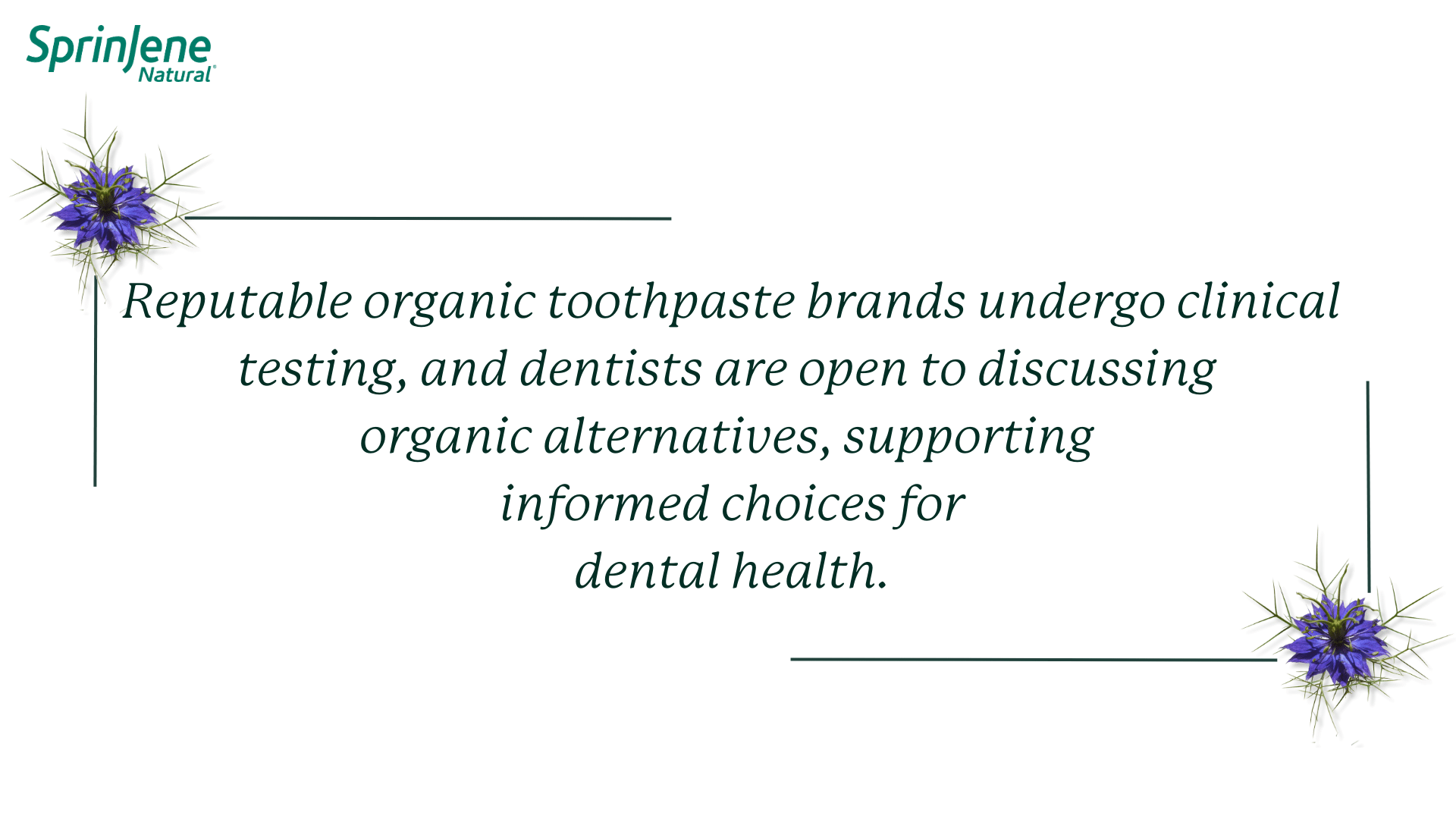
Are you ready to experience the benefits of organic toothpaste with black seed oil? You might consider giving SprinJene Natural® Toothpaste a try. Check here the benefits of switching to natural toothpaste for a healthier smile.
Experts tested SprinJene Natural® and it is committed to providing you with effective, organic dental care. It might be the ideal pick to boost your dental health. Switch now and be part of the growing group of people who value using natural and eco-friendly options for their oral health. Your dental well-being will appreciate these decisions!
If you want to SAVE MORE without compromising your oral health, BUNDLE here and get discounts.
Frequently Asked Questions
-
Is organic toothpaste suitable for pediatric use, particularly for children?
Children can certainly use organic toothpaste as a suitable option, provided it is a product specifically formulated to meet their particular needs. They should seek recommendations from a pediatric dentist for the most appropriate choice.
-
What is the typical duration required for organic toothpaste to yield visible teeth-whitening effects?
The duration required to observe teeth whitening effects from organic toothpaste can differ from one person to another, but incremental improvements may become apparent over several weeks.
-
Are there any potential adverse effects associated with the usage of organic toothpaste?
Organic toothpaste generally earns recognition as a safe option. Nonetheless, individuals with specific allergies or sensitivities should thoroughly scrutinize the product's ingredients to confirm its compatibility with their unique conditions.
-
Can organic toothpaste serve as a substitute for professional dental care?
While organic toothpaste contributes to oral health, regular dental check-ups and professional care are still essential for maintaining dental health.
-
What are the environmental benefits of using organic toothpaste?
Choosing organic toothpaste may support eco-friendly practices such as sustainable packaging and ethical ingredient sourcing, reducing the environmental impact of oral care products.

